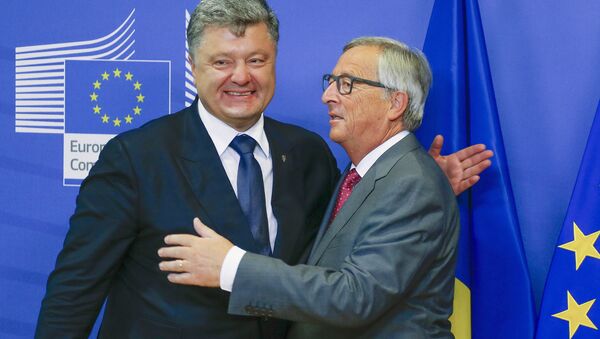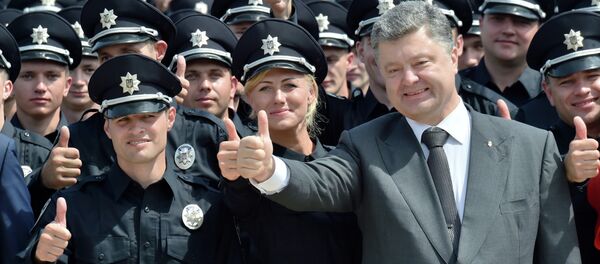Umland, an analyst at the Kiev-based Institute for Euro-Atlantic Cooperation, told Apostrof that while he fully supports Ukraine's attempts to reform along Western lines, his assessment of the first two years of President Poroshenko's term in office is mostly negative, since Ukraine continues to face many of the same problems it did when he was first sworn in, along with a series of new ones.
Among the areas where mistakes were made, in the scholar's opinion, were the reform of public administration, the fight against corruption (or the lack of one), and the failure to establish the rule of law.
Moreover, Umland said that he knows "many foreign observers, diplomats, and representatives of donor organizations who are for the most part dissatisfied with the results of these so-called reforms. Reform is something talked about a lot in Ukraine, but what's actually done is several times less than what is talked about."
In any case, the root of the country's governance problems, according to the analyst, is that Ukraine has not been able to escape the malaise of its post-Soviet existence. "No radical changes have been made to the logic of the functioning of the Ukrainian political and economic system," he noted. "This is the root of all evil. It is built on the concepts of cronyism, 'covering each other's backs', patronism, nepotism, clans, bribery and intrigue. Informal mechanisms, not the rule of law, regulate social life."
This system, according to the expert, applies to all levels of government, including the president's entourage, lawmakers, officials and bureaucrats. The country's authorities, he suggested, face a "problem of culture," and seem unable to escape this "system of backroom agreements."
Meanwhile, commenting on the many foreigners who have been brought into the government to carry out reforms, Umland indicated that he gets the impression "that all these foreigners are invited into Ukrainian politics for image purposes. In fact, I do not think that these foreigners are needed."
Furthermore, the analyst complained that the Ukrainian president seems to be more concerned with his own power and business interests than he is with his country. In this regard, he suggested, much of whatever reform progress has been made should be associated with pressure from foreign donors and civil society, not with the head of state.
Ultimately, noting that Western leaders were taken in at first by Poroshenko's mannerisms and by his English language skills, eventually, Umland said, "the inactivity and the façade of reforms in the country" are now both working against him personally and "undermining Ukraine's foreign policy. Many Western partners are disappointed with the president."




